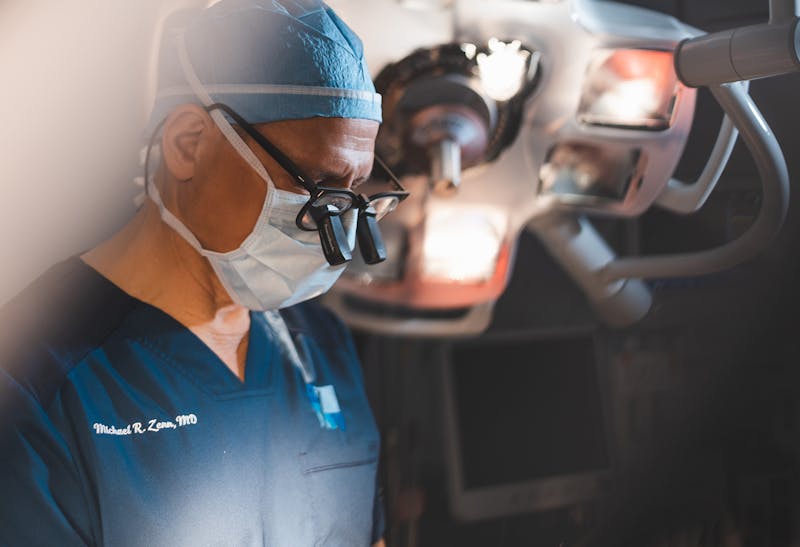

When considering plastic surgery, your choice of surgeon can significantly impact your results and overall experience. Achieving safe, natural, and beautiful outcomes requires not only a deep understanding of the craft but also extensive training and experience. This blog post will explore why experience matters when choosing a plastic surgeon and will highlight how rigorous training, hands-on practice, and years of expertise come together to deliver exceptional results. Understanding the journey to becoming a plastic surgeon can provide valuable insight into making an informed decision.
The Foundation: Medical School and Beyond
Every surgeon's journey starts with medical school, a rigorous four-year program where they gain a comprehensive understanding of human anatomy, physiology, and pathology. These foundational years teach future doctors how the body works and what can go wrong. After medical school, aspiring plastic surgeons must complete a plastic surgery residency, which typically lasts another 6-8 years. This is where the real transformation from student to doctor to surgeon begins.
Residency: Building Essential Skills
Residency programs in plastic surgery are highly competitive and rigorous. During this time, surgeons-in-training learn the fundamentals of surgical techniques under the close supervision of multiple experienced mentors. This training includes hands-on experience in:
- Cosmetic surgery: Learning techniques to refine and enhance natural features of the face, breast, and body.
- Reconstructive procedures: Addressing congenital abnormalities, trauma, and cancer reconstruction for many parts of the body.
- General surgery: Building a strong foundation in handling complex surgical cases and aftercare.
Residency is about building technical skills and gaining exposure to a wide variety of cases. However, residents work under the guidance of senior surgeons, meaning they are not yet solely responsible for surgical results or patient care. This phase resembles an apprenticeship, where surgeons hone their skills and learn various techniques.
Fellowship: Specializing in Expertise
For many plastic surgeons, the next step is pursuing a fellowship in Aesthetic Surgery, which can cover facial plastic surgeries, breast surgery, and body contouring. Fellowships usually last 6 months to a year and offer advanced, focused training under the watchful eyes of highly specialized senior surgeons. This stage allows surgeons to better understand specific procedures in their chosen field but not necessarily expertise in their own hands.
Independent Practice: The True Test of Experience
Once training is complete, surgeons transition to independent practice or work for an institution. Here, they take full responsibility for their patients and surgical outcomes. While the years of training are invaluable, it is when surgeons practice independently that expertise truly develops. Surgeons must adapt, problem-solve, and achieve consistent results with every procedure and be aware of their own shortcomings while putting on a confident demeanor.
The novice or poorly trained surgeon often performs every procedure the same way. They may have learned this one way in their training, read about it in a book, or watched a YouTube video. As a result, without the ability to pivot and reconsider alternate options during surgery, sometimes results are good, but often results are disappointing. The same procedure cannot be done the same way for all patients, and without significant experience, surgeons may not have the tools or flexibility to treat individuals effectively. Unexperienced plastic surgeons frequently face issues such as wound healing problems, asymmetry, and unnatural-looking results because they simply lack the experience to know which technique and modifications to apply to each unique patient.
A well-trained surgeon moves from the beginner “engineer” stage in their early years—making marks and measuring angles as they’ve seen others do—to focusing on the modifications to their procedures as they can anticipate problems and have the confidence to try variations they have read or heard about. This also has its own learning curve. After a decade or more, the now-experienced surgeon transitions to the “artist” stage. Anatomy is deeply appreciated in this phase, and markings become guidelines rather than rigid rules. The uniqueness of each patient’s body is fully considered, allowing the surgeon to seamlessly and reliably achieve beauty and symmetry tailored to each individual.
Therefore, when choosing a plastic surgeon, it would be helpful to know:
- How long has the surgeon been practicing SINCE completing training and passing plastic surgery board certification (American Board of Plastic Surgery)?
- How often do they perform the procedure you're considering, and how many of the procedures have they done in their career?
- Do they have a portfolio of before-and-after photos from actual patients, not shared patients with other attendings during residency, preferably seen in consultation instead of website galleries?
Understanding Board Certification in Plastic Surgery
When choosing a plastic surgeon, one of the most important qualifications to look for is board certification from the American Board of Plastic Surgery (ABPS). This certification signifies that the surgeon has undergone rigorous training, completed an accredited residency, and passed comprehensive exams to validate their expertise. Beyond initial certification, surgeons must participate in ongoing education to stay updated with the latest advancements and maintain their certification.
However, not all certifications are created equal. It’s essential to understand what board certification is not:
- Certifications unrelated to cosmetic or plastic surgery: Some practitioners may be board-certified in other fields, such as ophthalmology, ENT, general surgery, or dermatology, but these do not reflect expertise in plastic or cosmetic surgery.
- Certifications that bypass standard training requirements: For instance, the "Board of Cosmetic Surgery" does not mandate an ACGME-approved residency, a critical surgical training standard. The American Board of Plastic Surgery is the ONLY recognized certifying board for the field of plastic surgery.
When considering something as personal and impactful as plastic surgery, prioritizing board certification from a reputable organization like the ABPS ensures your surgeon has the training, knowledge, and commitment to deliver safe and effective results.
Summarizing Key Points: What to Look for in Training and Experience
When evaluating a plastic surgeon, consider these factors:
- Comprehensive training: Ensure they have completed a residency and, if applicable, a fellowship in plastic surgery.
- Board certification: Look for certification from the ABPS, which indicates the highest standards of training and expertise.
- Independent experience: Ask about their years in independent practice and the volume of procedures they've performed.
- Surgical results: Review their portfolio of before-and-after photos of patients with your body type who look like you and seek recommendations from previous patients.
Why Training and Experience Matter
Comprehensive training and experience are essential for a plastic surgeon to deliver safe, natural, and effective results. A skilled plastic surgeon blends technical expertise, artistic insight, and adaptability to meet each patient's unique needs. Choosing a board-certified surgeon with years of experience following formal training ensures your care is in expert hands.
This combination of rigorous training and real-world experience prioritizes your safety and delivers exceptional outcomes while fostering trust and confidence throughout the process. In plastic surgery, the surgeon’s experience truly makes all the difference—ensuring results that align with your goals and enhance your natural beauty.
Dr. Zenn was the Director of Plastic Surgery Residency at Duke for more than a decade. He authored the textbook “Reconstructive Surgery,” which is used around the world by plastic surgeons in training to learn the principles of Plastic Surgery. He has mentored and taught plastic surgery residents from around the world for his 20+ year career.

